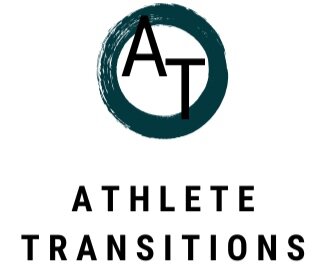
Career and Education Exploration
In a traditional sense, retirement comes near the end of one’s life and signals a shift into a life after work. For us athletes, this transition into retirement comes earlier and signals a shift into a new career and lifestyle that requires significant change and development and of new skills and the repurposing of old ones. Depending on the sport that you have played, this transition can come as early as the teen years, or as late as mid-life (Kerr & Dacyshyn, 2000; Smith & McManus, 2009). Often athletes are retiring from their sporting career just as others are in the middle of developing the career they will engage in for their lives. This creates a unique situation where the athlete will need to explore new careers and educational goals, later than most, in order to find the path that will take them into the next phase of their life.
If we are fortunate enough to have the opportunity to engage in career and educational exploration and goal setting while still competing, we can get a head start on the process of determining what we want the next stage of our life to look like sport (Lally, 2007; Martin, Fogarty, & Albion, 2014; Torregrosa, Ramis, Pallarés, Azócar, & Selva, 2015; Warehime, Dinkel, Bjornsen-Ramig, & Blount, 2017). Even if we didn't have time during our playing career, we can still utilize goal setting and career and skill exploration to help us determine what we want this next part of our life to look like. As athletes, it is likely that we will develop a number of transferable life skills that may aid us in the acquisition of further education or greatly benefit us in the working world, being highly valued by many employers (Brandt, Harmsen, Walsh, Bonura, & Galli, 2016).
As athletes, goal setting is often a common practice for us. Setting and planning for athletic goals is likely a large part of what contributed to your success in your sport. Goal setting is also applicable in our life beyond sport and can be integral in providing us a sense of control over the next stage of our lives. Goal setting can help us gain confidence in our ability to adapt to post-sport life, as well as provide clear direction of where we want to be going in our life and how we will get there (Martin, Fogarty, & Albion, 2014).
Transferable Skills
Transferable skills, also known as life skills, are skills that we acquire throughout life that are applicable across all areas of life and especially useful in the working world. As athletes, we develop a number of these skills throughout our careers, often without realizing it. During their sporting career, an athlete learns communication, conflict resolution skills, and the skills necessary to build relationships with a wide variety of people. They also learn to work and perform under pressure, to problem solve, to be self-motivated, and to set and achieve goals, just to name a few (Brandt et al., 2016). Being able to identify the skills that you possess and can execute at a high level is beneficial when undergoing the interview process and working towards new career and educational goals.
Work Values
Understanding our personal values and what motivates us to chase success is incredibly beneficial in helping us to navigate this next stage of our lives. As athletes, we were all motivated by some internal drive to compete, train, and succeed within our sporting careers. These same values can assist us in finding success in our careers and post-sport life. Understanding what we value in a working environment or a career can be helpful in providing direction in terms of what type of career or careers we should pursue following the end of our sporting careers.
References:
Brandt, T. B., Harmsen, N. B., Walsh, A. B., Bonura, K. B., & Galli, N. B. (2016) Career transitions in sport. SportPsych Works, 4(1), 1-2.
Erpič, S. C., Wylleman, P., & Zupančič, M. (2004). The effect of athletic and non-athletic factors on the sports career termination process. Psychology of Sport and Exercise,5(1), 45-59. doi:10.1016/s1469-0292(02)00046-8
Kerr, G., & Dacyshyn, A. (2000). The retirement experiences of elite, female gymnasts. Journal of Applied Sport Psychology,12, 115-133. doi:10.1080/10413200008404218
Lally, P. (2007). Identity and athletic retirement: A prospective study. Psychology of Sport and Exercise,8(1), 85-99. doi:10.1016/j.psychsport.2006.03.003
Martin, L. A., Fogarty, G. J., & Albion, M. J. (2013). Changes in athletic identity and life satisfaction of elite athletes as a function of retirement status. Journal of Applied Sport Psychology,26(1), 96-110. doi:10.1080/10413200.2013.798371
Smith, J. L., & McManus, A. (2009). A Review on transitional implications for retiring elite athletes: What happens when the spotlight dims? The Open Sports Sciences Journal, 1(1), 45–49. https://doi.org/10.2174/1875399X00801010045
Torregrosa, M., Ramis, Y., Pallarés, S., Azócar, F., & Selva, C. (2015). Olympic athletes back to retirement: A qualitative longitudinal study. Psychology of Sport and Exercise,21, 50-56. doi:10.1016/j.psychsport.2015.03.003
Warehime, S., Dinkel, D., Bjornsen-Ramig, A., & Blount, A. (2017). A qualitative exploration of former college student-athletes’ wellness. Physical Culture and Sport Studies and Research,75(1), 23-34. doi:10.1515/pcssr-2017-0018




